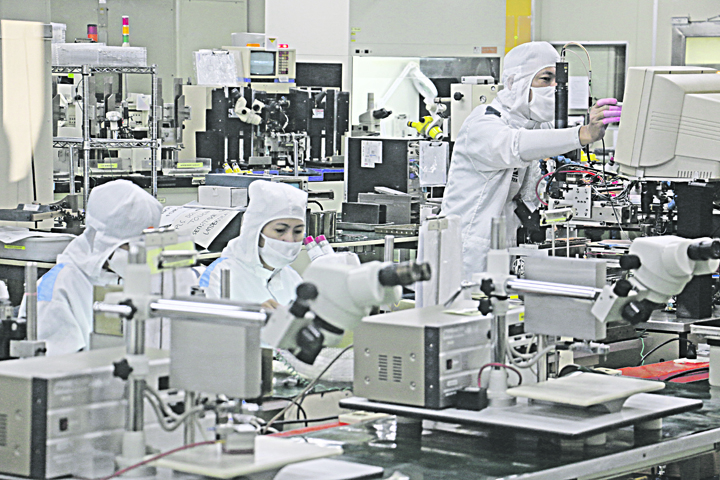
THE Philippines was urged to move quicker with its ratification process for the world’s biggest trade pact as it is set to enter into force by January next year after the majority of the parties recently expressed acceptance of the economic agreement.
The country stands to benefit from the ratification of the Regional Comprehensive Economic Partnership (RCEP), to which it is a signatory, given this economic deal opens up further market access not only to Asean countries but to their free trade agreement (FTA) partners as well, advocates of early ratification said.
Otherwise, they warned, the Philippines will not be able to reap the benefits of the trade deal.
President Duterte signed the document in September. It is currently under deliberation by the Senate.
“We hope that Senate concurs ASAP [as soon as possible] so we can deposit our Instrument of Ratification/Acceptance [IOR/A],” Alegria Limjoco, chair at the Philippine Chamber of Commerce and Industry (PCCI), told the BusinessMirror.
“The Philippines needs to be a party ASAP since RCEP agreement will bring more benefits to the country, especially MSMEs [micro, small and medium enterprises], service providers, and even professionals. It provides access to cheaper raw materials because tariff rates for most of the raw materials and intermediate goods have been liberalized,” the PCCI official added.
Semiconductor and Electronics Industries in the Philippines Foundation Inc. (Seipi) President Danilo Lachica agreed that it will bode well for the Philippines if ratified immediately, noting it can reduce the overall cost of imported materials and exported goods.
“The sooner the better,” Lachica told the BusinessMirror.
Michael Ricafort, chief economist at Rizal Commercial Banking Corp., shared this sentiment. He said the Philippines needs to accelerate the ratification of RCEP, “especially if it would help attract more investments, boost exports, and create more employment opportunities as part of the priorities under the economic recovery program from the pandemic.”
Management Association of the Philippines national issues committee chairman Rizalina Mantaring said RCEP indeed will allow the local companies to have greater participation in the global value chain.
Philippine Exporters Confederation Inc. (Philexport) Chairman George Barcelon, meanwhile, offered a different opinion. He said there is no need to hurry the RCEP ratification yet.
“We have to address our competitive advantage before opening up our markets,” he said, citing the cost of power, labor and logistics services.
He said the existing Asean trade deal, along with the Philippines’s trade agreement with Japan and the European Union, is “already sufficient.”
Target date
The Department of Trade and Industry (DTI) hopes the ratification will be finalized this month.
Trade Secretary Ramon Lopez said the DTI and other government agencies participated in the deliberations by the Senate Foreign Relations Committee last week.
“There will be another Committee hearing and hopefully after this, the RCEP can be presented and passed at the Senate plenary for ratification this November,” he said on Thursday.
DTI Assistant Secretary Allan B. Gepty is also looking forward to the immediate Senate concurrence as an FTA is crucial in establishing a “stable and predictable business environment.”
Gepty noted that participating in the mega trade deal is also seen as an economic recovery strategy amid the pandemic. As such, Lopez said, the delay in participation will have an adverse impact for the country in terms of economic growth, investments and job generation.
“We should not be left behind,” the DTI chief said.
Enter into force
After Australia and New Zealand sent their IOR/A this month, the Asean Secretariat noted that the RCEP has been ratified by six Asean member-states and four Asean FTA partners already. These are more than enough to allow RCEP’s entry into force by January 1, 2022.
Other countries that ratified already are Brunei, Cambodia, Laos, Singapore, Thailand, Vietnam, China and Japan. Apart from the Philippines, four others—Indonesia, Myanmar, Malaysia and South Korea—have yet to submit their IOR/A.
“The expeditious ratification process by signatory States is a true reflection of our strong commitment to a fair and open multilateral trading system for the benefit of the people in the region and the world. The implementation of the RCEP Agreement starting 1 January next year will give tremendous boost to the post Covid-19 economic recovery efforts,” Asean Secretary-General Dato Lim Jock Hoi said in a statement.
The Asean Secretariat also noted that the preparatory work for RCEP’s entry into force will continue.
“The preparatory work undertaken by signatory States aims to lay a solid ground for the full and effective implementation of the Agreement through finalization of the technical and institutional aspects of the Agreement,” it added.
The trade agreement was signed by 10 member-states and five Asean FTA partners—Australia, China, Japan, Korea and New Zealand—in November last year. The RCEP region accounts for 29 percent or $25.8 trillion of the global gross domestic product, 30 percent of the world’s population and 25 percent ($12.7 trillion) of global trade in goods and services.

